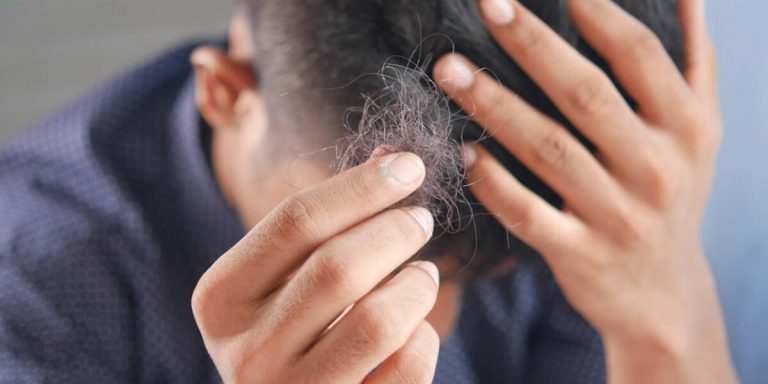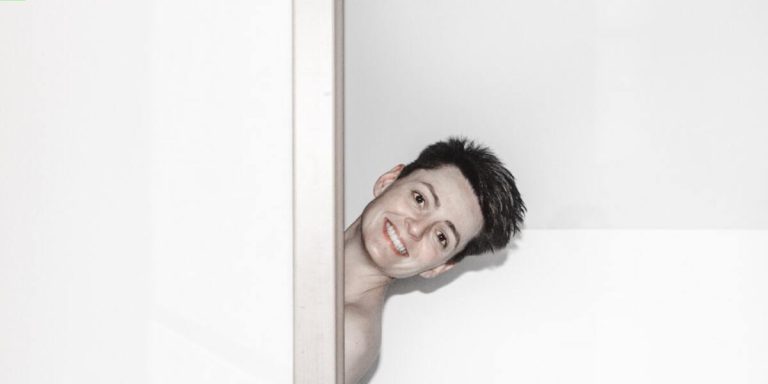Does Trenbolone Cause Hair Loss? An In-Depth Analysis to Uncover the Truth
Does trenbolone cause hair loss? This is a question that has been increasingly asked as the use of this anabolic steroid becomes more prevalent in fitness and bodybuilding circles. Known for its muscle-building properties, Trenbolone also carries with it some potential side effects, one of which may impact your crowning glory – your hair.
The interplay between steroids like trenbolone and hair loss isn’t straightforward. It’s rooted in genetics, hormone imbalances, and even factors such as diet or stress levels. In our continued exploration into causes of hair loss we will delve deep into understanding if there’s truth to these claims about trenbolone leading to baldness.
Did you know?
Despite its use in bodybuilding, Trenbolone, a popular anabolic steroid, can significantly increase the risk of hair loss. This is especially true for men with a genetic predisposition to baldness.
Understanding Trenbolone and Its Impact on Hair Health
Trenbolone, a potent anabolic steroid often used for muscle growth and physical performance enhancement, has been circulating in discussions around hair loss causes. Known for its powerful effects on the body’s physiology, there is evidence to suggest that prolonged usage could potentially intensify hair thinning or expedite male pattern baldness.
Trenbolone itself does not cause hair loss; however, it raises Dihydrotestosterone (DHT) levels in your system. When combined with genetic susceptibility, this hormone can worsen alopecia conditions—a common situation among men but also present in women. DHT binds to receptors in scalp follicles and impairs their ability to generate healthy hair strands. This impairment causes premature aging and eventual death of the follicles, leading to significant hair shedding rates.
Let’s remember that individual genetics play a pivotal role too. Someone predisposed may experience a faster onset, while others may not notice any visible changes even after years of trenbolone use. This highlights the complex interactions between genes and lifestyle choices that can influence one’s vulnerability to losing precious locks. Despite these varying outcomes, we must respect each person’s unique biology by being informed about potential risks before venturing onto paths where returning becomes difficult if problems arise unexpectedly.
The Hormonal Effects of Trenbolone Leading to Hair Loss
Trenbolone, a potent anabolic steroid popular among bodybuilders for its muscle-enhancing benefits, unsurprisingly comes with some side effects. One question that people often ask is – “Does trenbolone cause hair loss?” The answer isn’t black and white but let’s look into this.
Firstly, it’s crucial to understand Trenbolone’s impact on your hormones since hormonal fluctuations are primarily responsible for hair health or lack thereof. When you inject Trenbolone in your body, it leads to increased levels of Dihydrotestosterone (DHT), one potent form of testosterone. Researchers have found links between high DHT levels and male pattern baldness due to the hormone shrinking hair follicles.
Moreover, individuals predisposed genetically towards baldness may find their condition magnified as excessive amounts of DHT tend speed up the process remarkably when compared alongside those without such genes.
However not everyone using Trenbolone experiences significant hair shedding; genetics play undeniably a major role here too! So while our focus remains on answering whether does trenbolone cause hair loss or not –sample studies confirm there could be considerable truth in these concerns particularly if you’re prone already genetically!
Assessing the Scientific Evidence Linking Trenbolone to Alopecia
Trenbolone, a popular anabolic steroid among bodybuilders and athletes, has been extensively debated for its potential impact on hair health. Many users often ask the crucial question – does trenbolone cause hair loss? Let’s delve into the available scientific evidence to settle this matter.
The primary concern revolving around trenbolone usage is its powerful androgenic properties. Simply put, it highly mimics Dihydrotestosterone (DHT), which contributes mainly to male characteristics like muscle mass but sadly also associates with alopecia or pattern baldness.
Several studies have highlighted that individuals sensitive to DHT are more prone to experiencing hair thinning when using steroidal substances like trenbolone. This condition results from follicles’ miniaturization –a process where upon exposure to excessive DHT levels; your scalp hairs progressively become thinner until they eventually fall out completely.
However, it doesn’t mean everyone who administers Tren will suffer from severe shedding of tresses instantly. There’s a complex interplay between genetics and hormonal balance at work here too! Scientists underscore how our genes decide if we’re inherently susceptible or immune towards such adverse effects related with anabolic steroids use.
In conclusion of these research findings linking ‘does trenbonoloe cause hair loss’, it can be stated that while there’s valid evidence suggesting possible risks involved in prolonged consumption leading onto alopecia- not all individuals will necessarily experience them equally due their different genetic dispositions or constitution.
Comparing Anabolic Steroids: Trenbolone’s Role in Baldness
Trenbolone, a potent anabolic steroid preferred by bodybuilders and athletes for its muscle-bulking benefits, has recently been under scrutiny due to its potential role in causing baldness. Steroids like trenbolone are known to interfere with the body’s hormonal balance which can result in a series of side effects, one such unintended consequence being hair loss.
But why would trenbolone cause hair loss? The theory lies within its chemistry. Trenbolone is derived from testosterone – an androgen hormone that directly contributes to male pattern baldness when present at high levels or over prolonged periods.
When consumed excessively as performance-enhancing drugs by the fitness fraternity, it increases the amount of dihydrotestosterone (DHT), exacerbating hair follicle damage leading towards thinning and eventual shedding.
However, not everyone using trenbolones experiences this downside. Some users have strong genetic predispositions resistant against DHT-driven alopecia while others may be inherently sensitive even without these steroids’ intervention. In summary – yes, there exists a probabilistic link between trenbolone use and accelerated balding but guaranteeing universal validity needs more research into individual genetics besides standardizing steroid dosages.
Trenbolone versus Other Anabolics: The Risk for Hair Thinning
To comprehend the connection between Trenbolone and hair loss, it’s crucial to initially understand what this steroid encompasses. Known for its formidable muscle-building properties, Trenbolone is frequently used by bodybuilders and athletes worldwide. However, as with all anabolic steroids, it comes bundled with potential side effects – one of them being a concerning risk for thinning hair.
So how does trenbolone cause hair loss? In essence, when taken in large doses or over extended durations without proper guidance or supervision,Trenbolone can increase DHT (dihydrotestosterone) levels within your system. This enhanced form of testosterone has been scientifically linked to male pattern baldness due to its adverse impact on follicles—shrinking them which consequently leads to thinner strands that are more susceptible to breakage.
Comparatively speaking – how does trenbololne weigh against other anabolics in terms of this particular risk?
Tough question indeed! The answer resides mostly in genetic predisposition along with individual sensitivity towards these compounds. If you’re genetically prone to lose your mane early on– any exposure Anabolic Steroids like Ternobolene might speed up that process significantly.
How Androgenic Activity Influences Hair Follicle Damage
Androgens, such as Trenbolone, have a direct impact on hair follicles – they can stimulate growth in certain areas while causing loss in others. Understanding these relationships is crucial to predicting and preventing the damaging effects of anabolic steroids like Trenbolone.
Firstly, it’s essential we understand what happens at the root level. Hair follicle miniaturization is one common side effect witnessed with use of anabolic steroids; this process involves the shrinkage or thinning out of each strand due to disturbed cycle phases resulting from imbalanced hormonal activities.
Trenbolone used primarily for its powerful muscle building properties exerts strong androgenic effects which worsen existing male pattern baldness making it less desirable among those prone to losing their locks prematurely.
Secondly, Engaging with drugs containing extensive amounts DHT (Dihydrotestosterone) derivatives known for having higher affinity towards binding sites likely speed up natural recessive genetic traits associated with Alopecia thus posing significant risks on sustaining healthy scalp vitality even after discontinued usage.
Evaluating Preventative Measures for Steroid-Induced Hair Loss
Preventative measures can make a huge difference when it comes to preventing steroid-induced hair loss, particularly in the context of trenbolone. Trenbolone is an androgenic-anabolic steroid popular among bodybuilders due to its potent muscle-building properties. However, despite this allure for physical enhancement, there’s an undeniable dark side that users should be aware of – the potential for intense hair loss.
The link between steroids like trenbolone and accelerated hair shedding lies within their effect on hormonal balance. By boosting testosterone levels excessively, these substances increase DHT (dihydrotestosterone), which harms follicles susceptible to genetic balding patterns primarily found in males but also affect females. It’s worth noting that not everyone who uses steroids will experience this adverse outcome as genetics play a key role too.
To combat this issue effectively requires taking some preventative steps beforehand or during usage if you’re already engaged with trenbolone use today. Among common solutions are specific medications such as Finasteride or Minoxidil aimed at blocking DHT production; however they carry their own risks and drawbacks including possible negative side effects on libido amongst others so personal research along with professional medical advice is crucial before starting them.
Minimizing Risks: Can You Use Trenbolone Without Losing Hair?
Trenbolone, a potent anabolic steroid often used by bodybuilders for muscle gain and strength enhancement, has been linked to hair loss in some users. But here’s the million-dollar question – does trenbolone cause hair loss? The answer is not straightforward and depends significantly on individual variance.
Firstly, it is vital to understand that all steroids have potential side effects. When you introduce such substances into your system, changes are inevitable. Hair thinning or balding happens when these hormones interfere with the usual cycle of hair growth.
Research shows that genetic predisposition plays a significant role in steroid-induced hair fall. Steroids like trenbolone increase levels of Dihydrotestosterone (DHT), a hormone strongly associated with male pattern baldness condition known as Androgenetic Alopecia if one carries genes responsible for this type of hair fall.
Using Trenbolone doesn’t necessarily mean you’ll lose your lush locks overnight. You can minimize the risk by:
Effective Treatments and Alternatives to Combat Anabolic-Related Baldness
Anabolic steroids are infamous for their side effects, with hair loss being one of the most prevalent. Trenbolone is an example of such a steroid that can lead to this unwanted outcome. But does trenbolone cause hair loss?
The short answer is – yes, it potentially could.
Trenbolone’s impact on your scalp comes from its strong androgenic properties which trigger DHT (Dihydrotestosterone) production in the body – a hormone notorious for damaging and shrinking hair follicles leading to thinning or total baldness over time.
Dive deep into despair over potential steroidal impacts on your hair no longer, as there’s good news. Today, numerous effective treatments combat anabolic-related baldness—let’s explore some.
1. **Finasteride**: A FDA-approved drug used specifically to treat male-patterned baldness by blocking DHT formation.
2. **Minoxidil**: Another popular treatment option readily available as topical solutions or foam known for facilitating hair growth—even in severe cases.
3. **Nizoral Shampoo**: Contains Ketoconazole—an antifungal medication—that reduces fungal growth and decreases inflammation all while targeting excess Androgens linked with pattern-balding issues caused by Anabolics like Trenbolone.
If you’re apprehensive about possible side-effects these pharmacological interventions might bring forth, we’ve sorted out alternative therapies too!
Conclusion
In the debate of “does trenbolone cause hair loss”, evidence and a multitude of research suggest that there is indeed an undeniable connection. Like any potent medicine, it can have potential side effects which include accelerated thinning or shedding. However, its impact on your locks largely depends upon your genetic predisposition towards such complications.
To keep those shiny strands safe from harm’s reach, knowledge is undoubtedly power! Take some time to explore more diligently crafted articles available across our website for better understanding about ‘Hair Loss Causes’. Be proactive in scrutinizing what you introduce into your body – after all, when it comes to preserving the crowning glory, every strand counts.







